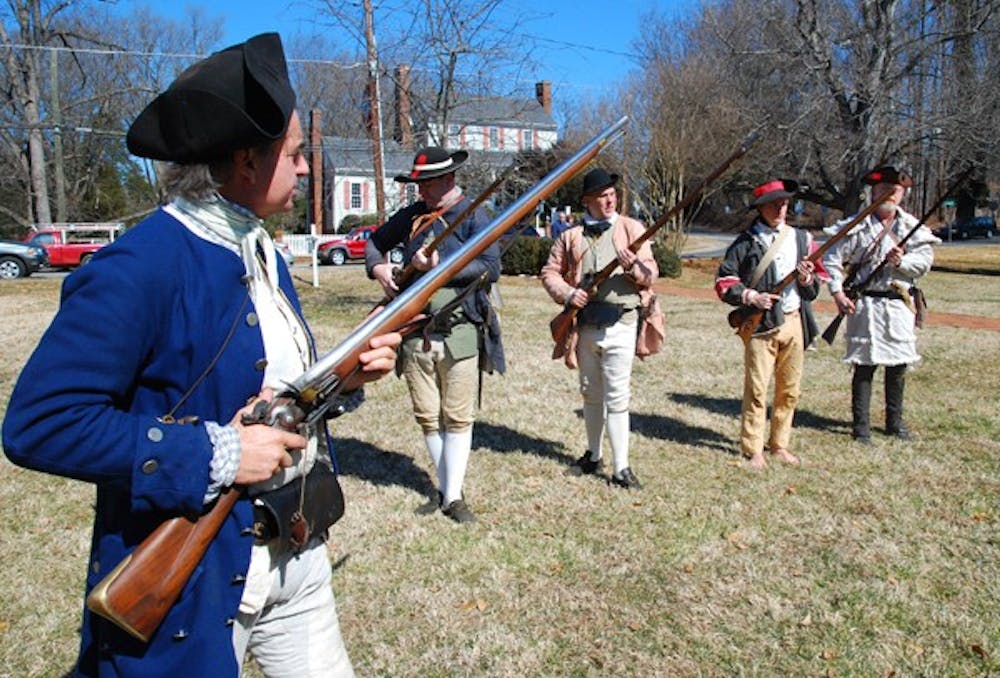Men wearing 18th century red coats with shiny gold buttons, the uniform of the British army during the Revolutionary War, camped out in the middle of downtown Hillsborough on Saturday.
The Loyalists’ camp stood across the field, where actors were demonstrating parts of camp life, such as cooking soup in front of a hemp tent.
The Alliance for Historic Hillsborough re-enacted the occupation of the city by British troops in 1781 for its ninth annual Revolutionary War Living History Day.
In February 1781, the 64th regiment stayed in Hillsborough, the most sizable town in North Carolina at the time. They occupied the town for 10 days, trying to gather as many Loyalists as they could to fight the Patriots.
David Snyder works in medical research at Duke but became the re-enactment’s regiment captain on Saturday. He has been participating in re-enactments for 35 years.
“I like to bust historical myths,” he said with a British accent that he harbored for the occasion, although he is from the Bronx. “I just love to get in another person’s skin and get away from modern times for the weekend.”
Every detail was there: the knitted socks, the hats, the sound of the muskets firing, the smell of gunpowder and rough orders barked with a British accent when doing marching drills.
Re-enacting history is not a cheap hobby. The hand-sewn uniforms cost about $500 each. The muskets cost the most, usually between $600 and $1,100. Participants were not paid by the town for putting on the event.
Some participate in such re-enactments every two weeks, on various places all along the East Coast. Some of them have even gone to England for re-enactments.
Steve Rankin, a carpenter and archeologist portraying a poor farmer on the Loyalist side, sat on the ground as he watched soup at the war camp come to a boil.
“It was not as cut-and-dry as people like to imagine,” he said. “Not everyone was a Patriot, and most of people actually picked the safest side at the moment, Loyalist or Patriot.”
Portraying history accurately and sharing that with the public motivates actors to continue, Rankin said.
Jean Gangloff, a Hillsborough social worker, came with her husband and their two children to the re-enactment.
“I majored in history in college because my brother was participating in these war re-enactments,” she said. “Seeing him doing it is what really got me into history, and I want the same for my children.”
Contact the City Editor at citydesk@unc.edu.
Hillsborough re-enactment depicts Revolutionary War

The group re-enacted the occupation of Hillsborough by British troops in 1781. DTH/Stephen Mitchell


